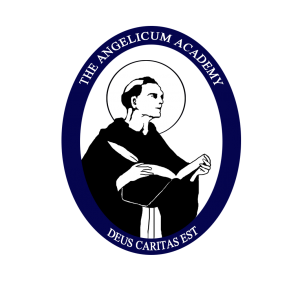Since our founding in A.D. 2000, we have aimed at providing our students with the very best-the most excellent education: the greatest books, materials, courses and teachers. This unique, online honors program, combining the Angelicum Academy’s Great Books Program and The Great Courses Plus/Wondrium, completes that goal, and is, we believe, an unparalleled educational program.
At the University of Oxford and some other universities, the undergraduate course of study focused on the classics of ancient Greece and Rome is titled Literae Humaniores (human literature, concerned with human learning-the humanities). It consisted of detailed study contrasting the great works of classical civilization and their great heroes, philosophers, scholars, seers and sages with modern ones, so the course was colloquially called simply Greats.
The Angelicum Academy’s Honors Program combines the same “Greats”: the finest books by the greatest authors, in it’s Great Books Program, with the finest lectures taught by many of the world’s greatest teachers in The Great Courses Plus/Wondrium.
In this Honors Program students will read the greatest books ever written, selected by scholar-editors led for decades by Britannica’s Great Books Editor-in-Chief, the late Dr. Mortimer J. Adler, and will be taught by many of the world’s finest teachers (selected to teach courses by The Great Courses Plus/Wondrium online), who lecture at many of the world’s greatest universities and colleges. Greats Honors students will get access to their lectures via Wondrium– an online service that contains over 300 courses produced by The Great Courses™, and will have the opportunity to discuss these with fellow students for two hours per week in live, Socratic discussions moderated by two of our experienced faculty moderators. It just does not get any better in terms of excellence of books, teachers, lectures and overall presentation including discussions and tutorials (see below).
In the early days the Oxford Greats encompassed mathematics and natural sciences, and theology (i.e. res divinae or Lit Div.) was also taught. Dr. Adler and the Great Books editors added to the Great Books reading list a number of works of the natural sciences and theology. We have followed Dr. Adler’s advice regarding use of the chronological ordering of the Great Books readings: “In choosing a set of readings for a sequence of seminars, no attention at all should be paid to the field of subject matter in which the materials fall. A haphazard chronological ordering of them is much better than any attempt to order the materials so that they cover themes or topics in a particular subject matter.” The Great Books readings (HERE) are discussed in the weekly, live, 2-hour, Great Books discussions, which have two faculty moderators and actively engage student participation in the discussions.
Additionally, Honors students will have ongoing opportunities to meet online, live with their Academy mentor (September-May) to discuss and ask questions about the Great Courses lectures they have watched, and with tutors expert in various subject areas, and with fellow students. The mentor will have the student’s papers and weekly test results available so that they can privately monitor the student’s academic progress, provide friendly support and direction, encourage students to develop their full potential, and so they can send monthly progress reports to students and parents. The tutorials take place live, online, sometimes with fellow students taking the same courses at the same time, and will also help ensure students do not fall behind and are given some individual help if needed. At the University of Oxford these meetings are called “tutorials,” at Cambridge they are called “supervisions.” Both terms convey something of their purpose, which treat of individual subjects in more detail than do mentors or in the interdisciplinary Great Books courses.
One benefit of the tutorial system is that students may receive direct feedback on their weekly work in a discussion setting. As a pedagogic model, the tutorial system has great value because it creates learning and assessment opportunities which are highly authentic and difficult to fake. This relieves parents and administrators of the difficulty of attempting to monitor and assess their student’s studies. An example of an Oxford tutorial (in this example with just one student –Oxford has multiple-student tutorials as well) may be viewed here.

